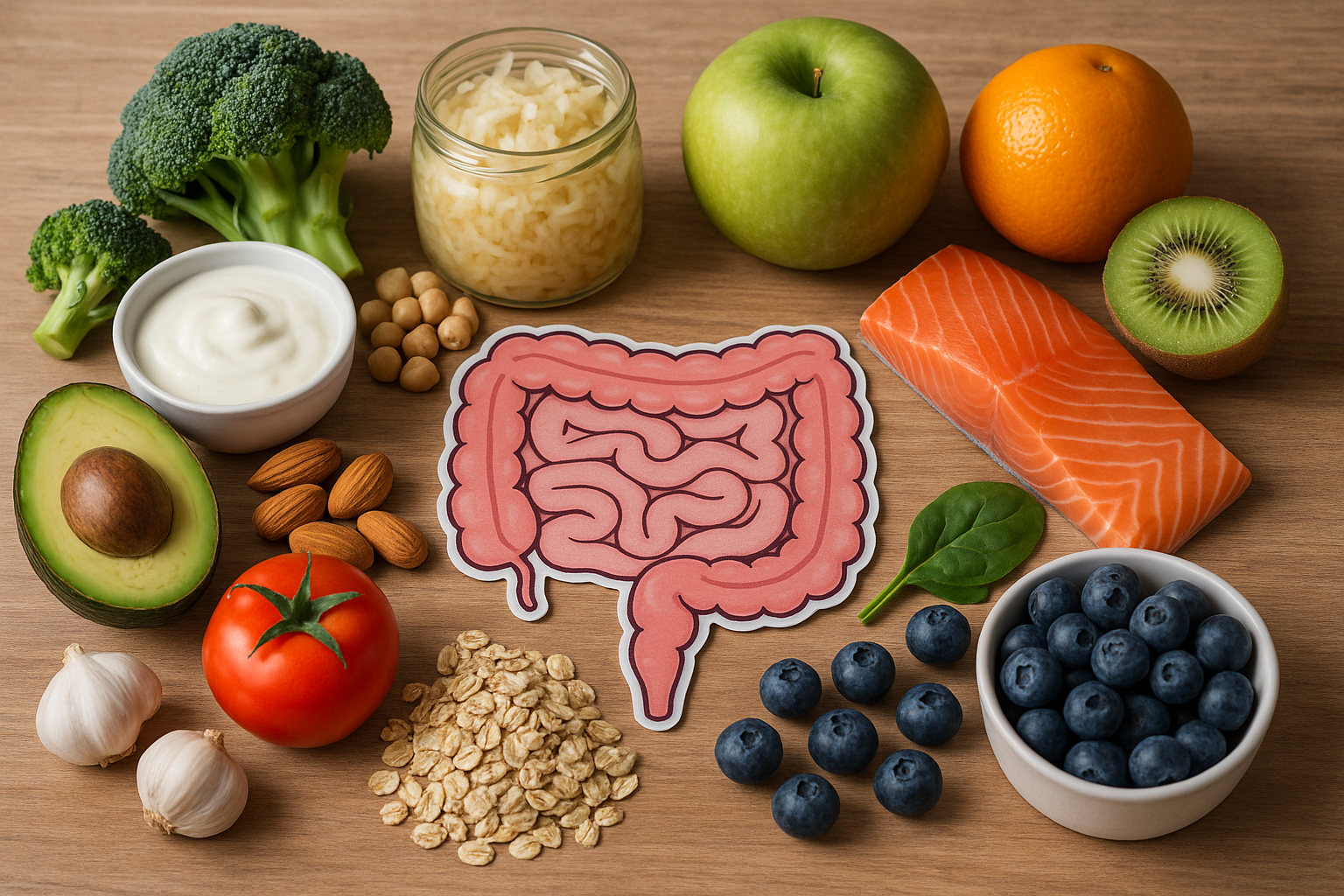Gut Health and Nutrition: Building the Foundation of Wellness

Introduction
When most people think of gut health, they immediately think of digestion. But as a physician, I remind patients daily that the gut is far more than a food-processing system. Your gut houses 70% of your immune system, plays a major role in hormone balance, and even communicates directly with your brain. Nutrition is the single most powerful tool you have to nurture your gut microbiome and, in turn, support your whole-body health.
At Sheen Vein (Aesthetics and Functional Medicine) in St. Louis, we regularly evaluate gut health as part of our functional medicine approach. Whether you are struggling with fatigue, autoimmune disease, skin issues, or chronic bloating, nutrition and gut balance are often at the root.
Why Gut Health Matters
The gut lining acts as both a digestive surface and a protective barrier. When healthy, it allows nutrients to be absorbed while keeping toxins, pathogens, and undigested particles out of circulation. When imbalanced, however, the gut becomes “leaky,” triggering inflammation and immune dysfunction.
Research has linked poor gut health to conditions such as:
- Irritable bowel syndrome (IBS)
- Autoimmune diseases like lupus and rheumatoid arthritis
- Hormonal imbalances (including thyroid and PCOS)
- Skin concerns such as acne, eczema, and rosacea
- Mood disorders like anxiety and depression
That’s why a healthy gut is not just about avoiding discomfort—it’s central to long-term health.
Nutrition and the Gut Microbiome
Inside your gut lives an entire ecosystem of bacteria, viruses, and fungi collectively known as the microbiome. A balanced microbiome supports immunity, regulates inflammation, and produces vitamins like B12 and K2. Nutrition plays the defining role in shaping this ecosystem.
1. Fiber: Feeding Your Good Bacteria
Prebiotic fibers found in vegetables, fruits, beans, and whole grains act as fuel for beneficial bacteria. These bacteria, in turn, produce short-chain fatty acids (SCFAs) that strengthen the gut lining and reduce inflammation.
2. Fermented Foods: Restoring Balance
Foods like sauerkraut, kimchi, kefir, and yogurt provide natural probiotics that can repopulate the gut with healthy bacteria.
3. Protein and Amino Acids
The gut lining is constantly renewing itself, and amino acids like glutamine provide the building blocks. Patients who under-eat protein or rely on processed foods often have weaker gut barriers.
4. Healthy Fats
Omega-3 fatty acids (found in salmon, walnuts, flaxseed) are anti-inflammatory and help calm gut irritation. In contrast, highly processed seed oils promote inflammation and disrupt gut balance.
5. Micronutrients
Zinc, magnesium, and vitamin D are crucial for immune function within the gut. Deficiencies in these nutrients are common in stressed or inflamed individuals.
Foods That Disrupt Gut Health
Just as nutrition can heal, it can also harm. Some of the biggest offenders include:
- Processed sugars – feed harmful bacteria and yeast overgrowth.
- Refined carbs – lack fiber and spike blood sugar, worsening inflammation.
- Alcohol – irritates the gut lining and alters microbial balance.
- Artificial sweeteners – linked to microbiome disruption.
- Excess NSAID use – while not a food, these medications weaken the gut lining and contribute to leaky gut.
At Sheen Vein, we often help patients identify food sensitivities through testing or elimination diets, then create customized reintroduction plans to support healing.
Signs Your Gut Needs Attention
If you’re wondering whether your gut may be imbalanced, watch for these common signs:
- Frequent bloating or gas
- Irregular bowel habits (constipation or diarrhea)
- Fatigue, especially after meals
- Skin breakouts or rashes
- Brain fog
- Frequent illnesses
Many patients don’t connect these symptoms to gut health until we evaluate them through a functional medicine consultation.
Functional Medicine and Gut Health
Unlike conventional care, functional medicine looks at why the gut is imbalanced. At Sheen Vein, our gut-focused care often includes:
- Comprehensive stool testing to evaluate microbiome diversity, infections, and inflammation markers.
- Nutrient testing to check for deficiencies caused by malabsorption.
- Personalized nutrition plans focusing on whole, anti-inflammatory foods.
- Targeted supplementation such as probiotics, digestive enzymes, and gut-healing nutrients like glutamine or zinc carnosine.
By correcting the root imbalances, we help patients not only feel better but also reduce their long-term risk of chronic disease.
Gut Health and Whole-Body Wellness
Patients are often surprised when improving their gut leads to clearer skin, balanced hormones, or even better mood. That’s because the gut communicates with nearly every system in the body. Supporting gut health through nutrition can have far-reaching benefits, from improving autoimmune flares to boosting fertility.
Conclusion
Gut health is the cornerstone of overall wellness, and nutrition is the most powerful lever we have to improve it. By choosing whole, nutrient-dense foods, avoiding gut disruptors, and working with a clinician when symptoms persist, you can transform not only your digestion but also your immune system, hormones, and energy levels.
At Sheen Vein (Aesthetics and Functional Medicine) in St. Louis, we take a personalized, root-cause approach to gut and nutrition. Whether you’re struggling with chronic digestive issues or looking to optimize your health, we’re here to help you restore balance.
Schedule a consultation today to begin your journey toward better gut and whole-body health.